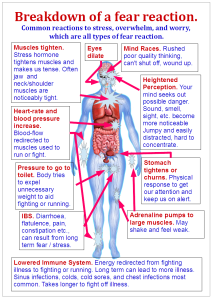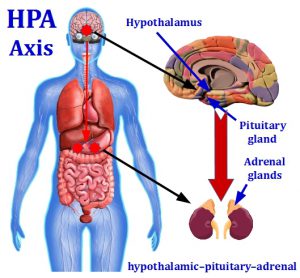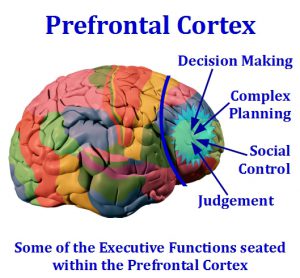Stress is not magic. If it’s present it because of a system activating inside the brain.
 That system can help us but can also harm us if it remains active for too long. What we think of as work stress is usually the mind’s ‘Self-preservation’ system switching on and staying on for too long. In many cases it gets used to being switched on and loses the ability to switch off.
That system can help us but can also harm us if it remains active for too long. What we think of as work stress is usually the mind’s ‘Self-preservation’ system switching on and staying on for too long. In many cases it gets used to being switched on and loses the ability to switch off.
Then we experience anxiety, fear, panic, dread meetings, shy away from colleagues we find difficult, catch more colds and infections, and experience continuing overwhelm and frustration.
The pressure that causes this ‘switching on’ can come in may forms. Too much pressure, poor communication, bullying, feeling unappreciated and undervalued, changing proprieties, interpersonal conflict, etc. Too much of any area can cause the brain to feel like we’re in danger. That’s where the irritation, anger, fear, isolation, and so on become profound. These are reactions to the system rather than truly being the problem. These are what we notice – the symptoms.
Understanding the system at work allows us to solve a lot of ‘problems’ or symptoms at once much life switching off the water at the mains can stop many leaks.
Stress in Mind and Body explained
The Science of Stress.
Chronic ongoing stress such as pressure at work, a tense home life, or crushing worries can have significant impacts on the brain.
The hypothalamus, Pituitary, Adrenal Axis is where the reaction begins. This hormone releasing system activates immediately when we perceive stress or danger, releasing the hormone cortisol.

In short bursts cortisol is useful, aiding focus, increasing energy and so on. But, over long periods of stress cortisol release effects a series of brain systems.
The amygdala, the brain’s clearing house for fear recognition is over stimulated, placing us into a more alert mode of thinking more suited to crisis management and instant decisions and at odds with concentration, focus, and spotting opportunity.
The part of the brain that deals with memory, learning, and stress control, the hippocampus has a decrease in electrical activity. As this weakens, so does your ability to control your stress.
Too much cortisol for too long a time can cause the loss of synaptic connections between cells, essentially reducing the brain’s ability to transmit information and function properly.
It can even shrink the front part of the brain (Prefrontal Cortex) that regulates concentration, social interaction, decision making, and judgement.

Learning and remembering things can be hard hit. In the long run it makes us more susceptible to depression, Alzheimer’s, and anxiety.
However, it has been shown that various activities and techniques can reduce stress. Reducing cortisol in the brain, regrowing hippocampus size, and allowing us to function more fully and be happier.
Our programs are designed to address day-to-day real world situations and train you in how to get the most out of your brain.



